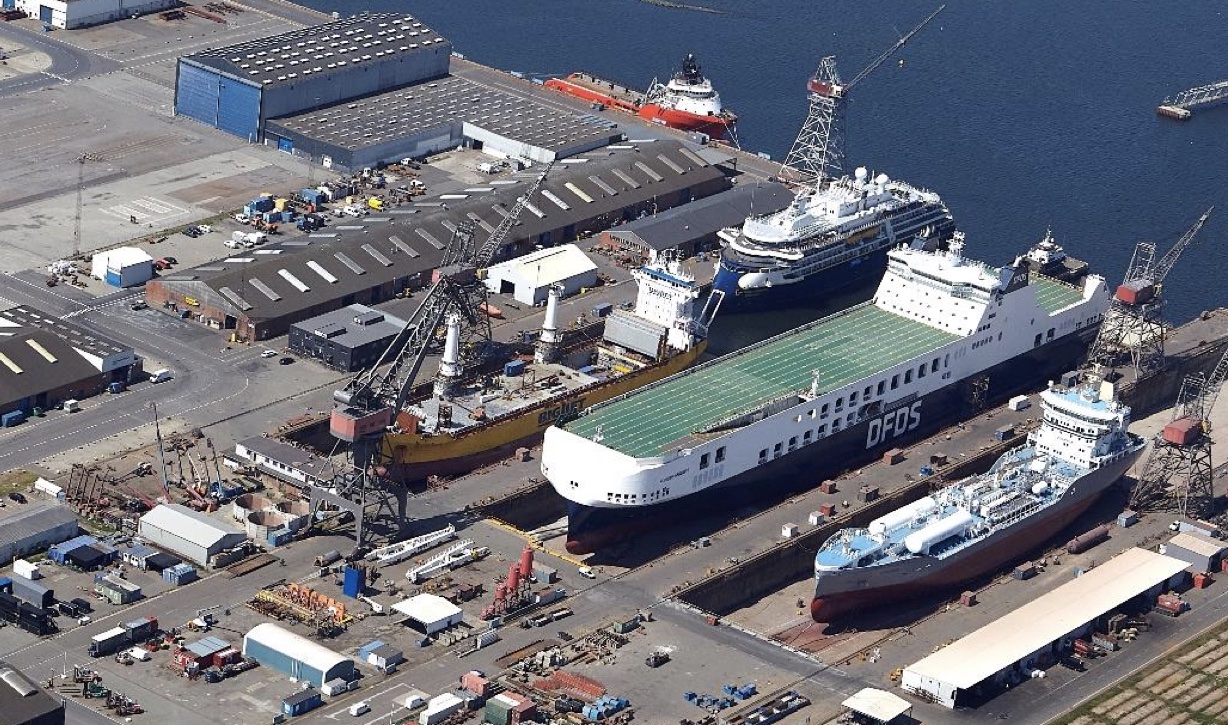
'We're preparing for our customers' demand for data on indirect emissions'
Fayard
Fayard is on of Europe's leading ship repair yards. In the future, the company will support its customers with reducing and documenting their indirect carbon footprint under the so-called Scope 3.
For some companies, it’s a breakthrough in their efforts to curbing climate change; for others, it’s a nightmare waiting behind the scenes. The so-called Scope 3 emissions include any emission that takes place outside the company’s four walls and control, whether it’s materials or transport, product use or disposal. While it’s not yet a legal requirement to document indirect emissions, it will be in the future, according to CCO in Fayard, Ivan S. Larsen:
“There’s no doubt that shipping companies, like most other companies, will face more and more legal requirements when it comes to documenting and reducing their carbon footprint. In 2023, companies are required by law to document Scope 1, which covers direct emissions, i.e. those you control yourself. From here, it’s easy to imagine that authorities will eventually require documentation of the total carbon footprint no matter where in the value chain it occurs.”
In order to be prepared for the future, Fayard has started the process of documenting the company’s own carbon footprint:
“Since 1916, we have maintained, repaired, improved, and rebuilt ships, which means that, on one hand, we help our customers to reduce their emissions, and on the other hand that we consume energy while doing it. We need to become much better at documenting both sides of the coin, so that our customers can use it in their documentation. As a modern maritime service company, it’s a natural next step in terms of customer service,” says Ivan S. Larsen.
With as many as four dry docks and further repairs in the water, Ivan S. Larsen admits that Fayard, like other shipyards, is a major consumer of energy:
“Each year, we repair and rebuild between 140 and 150 ships, which is a significant amount and causes a significant consumption of especially electricity and gas. The ships are usually between 15 and 20 years old. At that age, shipping companies typically have to decide on alternative solutions for future use. We often see the oldest ships leave the North Atlantic to be deployed on other routes where the weather conditions are less extreme.”

Making the right decisions
Kristian E. Andersen, Business Development Manager at Fayard, believes, like Ivan S. Larsen, that it’s the ability to make the right decisions that drives sustainability:
“Every day, we see our customers making the choice between maintaining something existing or buying something new – and we see them trying to balance sustainability gains and financial considerations. To do this, they need hard facts, preferably based on a data model, which is so robust that it can be validated externally. Building such a model is a lot of work, and we’re thankful for all the help we can get. We’re pleased that the UNDP, the maritime industry, and academia are interested in the issues that we are facing. It allows us to continue the strategic work that we launched in connection with the UNDP SDG Accelerator programme.”
Right now, shipping companies are focused on Scope 1 emissions, but Scope 2 and 3 are not far away, according to Kristian E. Andersen:
”The Scope 3 case has not been launched yet by the International Maritime Organization, IMO, but everything points in that direction. As a shipyard, we must stay competitive on the traditional parameters such as time, quality, and price, but we regard Scope 3 documentation as a key competitive advantage in the future. It may be seen as a nice-to-have at the moment, but we are convinced it will eventually become a need-to-have. At Fayard, we would much rather be at the forefront of development than be taken by surprise by reality. That’s why we’re starting now.”
Read more about Fayard here.
SDG 12.5
Fayard aims to substantially reduce waste generation, thereby supporting responsible consumption and production.
By 2030
Fayard hopes to substantially reduce waste generation through prevention, reduction, recycling and reuse.
Solution
Fayard aims to create a comprehensive data model to document the energy consumption arising from its repairs and conversions of ships.
Contribution
Fayard's solution can be crucial as all shipping companies could be required by law to document their total resource and carbon footprint across the value chain (Scope 3).
Founded 1916
Fayard is one of the largest repair shipyards in Europe, located in Denmark.
450 employees
Fayard serves approximately 140-150 ships per year.

 Locations
Locations